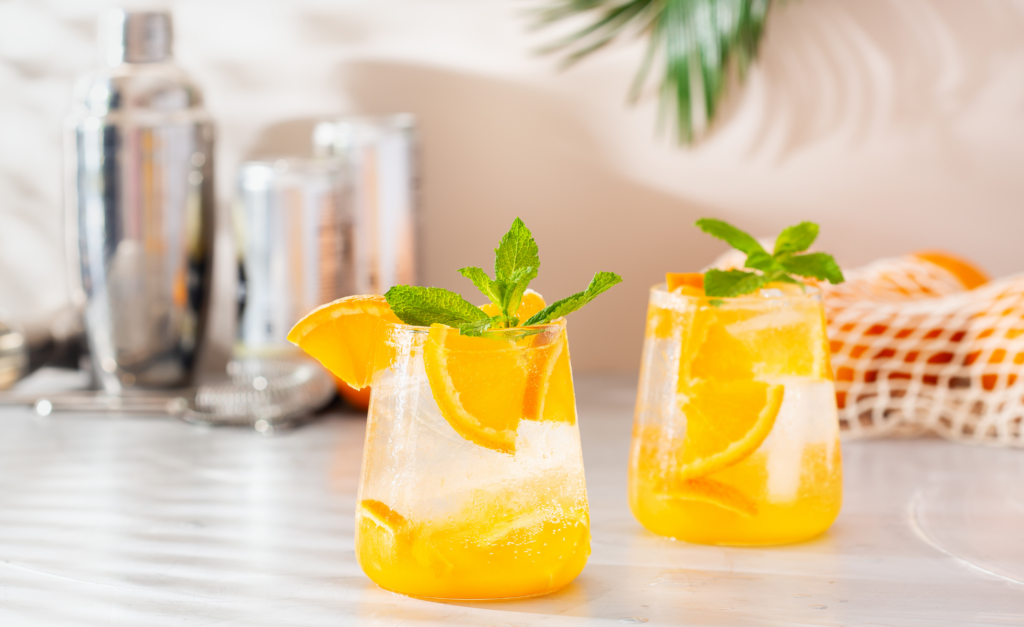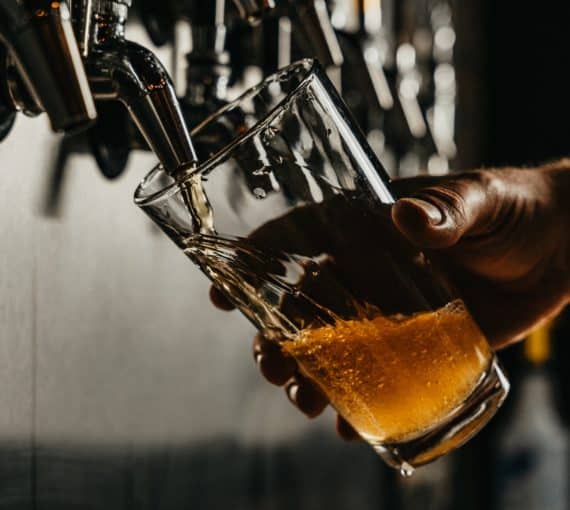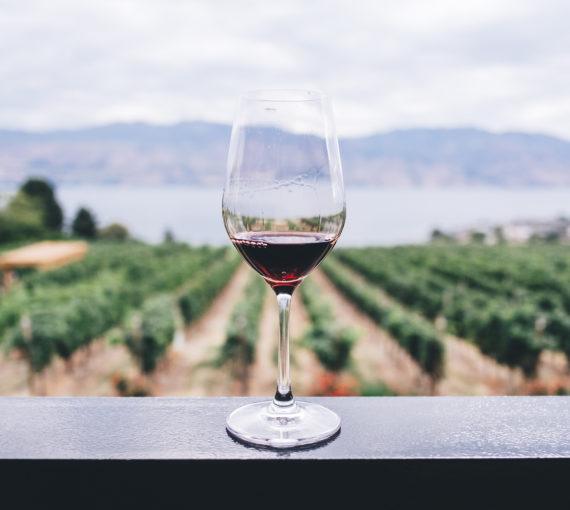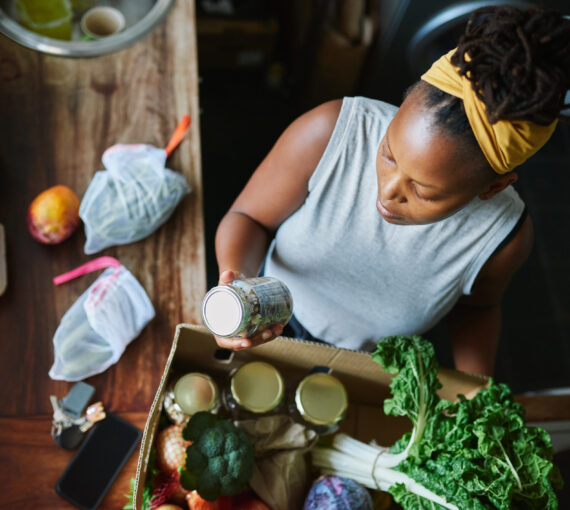
Climate change may be threatening your favourite liquor! Try a “green” spirit.
Take a sip toward sustainability. Drink spirits made with nature in mind
Spirits have been a part of human cultures for centuries. Each has unique traditions and production methods. In fact, spirits represent around 50 per cent of global alcohol consumption! If you decide to consume, be mindful — for your health and the planet’s.
Spirits produced using Earth-friendly methods are helping create a sustainable future for the alcohol industry — one sip at a time!
Remember: Alcohol consumption can have negative health and social impacts. Always drink responsibility.
Alcohol’s environmental impacts
The most significant environmental issues associated with global operation and production of spirits:
Water consumption
Water is essential for distilling spirits — from mashing grains and fermentation to proofing and cooling. One study found that distilleries use on average 37 litres of water to produce one litre of spirit. (That’s 10 times the amount used to produce beer and wine.) Some spirits are worse than others. More than 114 litres of water are used to produce just one litre of whisky. This can strain local water supplies, especially in regions already facing scarcity.
Energy consumption
The distillation process is energy-intensive. Heating the mash to extract alcohol and cooling it to condense into the spirit often rely on non-renewable energy sources. One study found that a single 750 millilitre bottle of spirit produces about three kilograms (6.5 pounds) of carbon dioxide. This contributes to greenhouse gas emissions and the carbon footprint of spirit production.
Waste and water pollution
Distilleries create an immense amount of “dark coloured wastewater.” It contains a slurry of organic and inorganic pollutants reported as genotoxic, carcinogenic, mutagenic and endocrine disrupting. It harms aquatic ecosystems by inhibiting photosynthetic activities. It impacts agricultural land by reducing soil alkalinity, inhibiting seed germination and vegetation growth.

Organic, local and carbon-neutral beer explained
“Green beer” once described beer artificially coloured for celebrating St. Patrick’s Day. But it’s come to mean more as brewers and breweries are taking an eco-conscious approach to what and how they produce.
Impacts of climate change and nature loss on spirits and how distilleries are adapting
Gin
Gin’s distinct flavour comes from juniper berries. These are susceptible to droughts and changes in climate. Rising temperatures and shifting precipitation patterns are threatening the regions where they thrive, leading to reduced yields and increased scarcity.
Changes in the gin industry
Some small gin producers in Ireland are collaborating with local farmers to cultivate native botanicals as alternatives. Others are working with scientists to create solutions like the world’s first “climate positive” gin. Using homegrown pea crops, researchers have reduced gin’s carbon footprint, cutting emissions from land clearing, cultivation, processing and transportation. Byproducts can be repurposed as animal feed, reducing reliance on imported soy.
Rum
Rum production depends on sugarcane. It’s sensitive to changes in rainfall and temperature. Extreme weather events, such as hurricanes and prolonged droughts, reduce sugarcane yields. This leads to supply shortages and price fluctuations.
Changes in the rum industry
Climate change threatens sugarcane. But sugarcane production also contributes to climate change. Growing it produces 400 million tonnes of CO2 annually. That’s equal to the energy used by 49 million homes each year. Bonsucro, a global sugarcane sustainability platform, developed ClimateCane tracker to help producers set reduction targets and work toward net-zero goals.
Some major producers are adopting sustainable practices in distillation, waste management, packing and energy use.
Tequila and mezcal
Climate change is affecting the endangered long-nosed bat (Leptonycteris nivalis) that pollinates the agave plant. That’s affecting the world’s supply of agave-based liquors like tequila and mezcal. A 2019 study revealed that rising temperatures and land degradation have shrunk the size of suitable environments for the agave plant and its pollinator.
Changes in the tequila and mezcal industries
The Tequila Regulatory Council launched the Environmentally Responsible Agave Certification. This represents tequila producers’ dedication to environmental sustainability in all stages of production and operation.
Some prominent tequila brands have adopted sustainability practices such as in-house water treatment systems, biomass boilers and recycling agave fibres to minimize their carbon footprint.
Whisky
Whisky production relies on barley. It’s sensitive to extreme weather, including droughts and heatwaves. Climate stressors can reduce barley yields and impact its quality, affecting the whisky’s taste and consistency.
Changes in the whisky industry
Scotland, the world’s largest whisky producer, is leading the charge toward a greener future! The industry cut its emissions by more than half since 2009 and runs on nearly 40 per cent renewable energy. In 2023, every distillery in Scotland pledged to become carbon neutral by 2040 and to achieve net zero by 2045.
Vodka
Climate change–caused extreme weather affects vodka’s two primary ingredients, wheat and potatoes. Potatoes are one of the most vulnerable crops in a changing climate.
Changes in the vodka industry
Air Company is an industry green leader. It produces a carbon negative vodka. Its patented and propriety technology “mimics the process of photosynthesis by capturing carbon dioxide and transforming it into pure alcohols that only leave oxygen and water behind.” For each bottle produced, a half-kilogram (one pound) of CO2 is removed from the air.
Other vodka brands are committing to sustainable processes like sourcing organic and non-GMO crops and setting ambitious carbon neutrality goals.

Organic, biodynamic, natural and vegan wines explained
You don’t have to be a master, sommelier or connoisseur. Just know that traditional winemaking methods are often best — for product quality and the environment.
The rise of “green” spirits
Just as beer has seen a “green” revolution, spirit producers are also embracing sustainable practices and committing to combat climate change and nature loss. From organic certifications to carbon-neutral production, distillers worldwide are taking steps to reduce their environmental impacts.
What to look for on spirit labels
Unlike beer and wine, it may be more difficult to find out if your spirit uses sustainable sourcing and production methods.
Some bottles feature an ecolabel or environmental claim. Alcohol retailers might showcase their “green” products or recommend eco-friendly spirits. For others, you may need to do your own research.
Words to look for on spirit labels:
- B Corp. Certified B Corporation brands uphold rigorous standards of social and environmental performance, accountability and transparency. There are dozens of B Corp spirit brands.
- Biodynamic. Though more common for wine, biodynamic whisky and brandy are on the rise.
- Carbon-neutral. Several distilleries are fully carbon-neutral. Many have pledged to become carbon-neutral in future.
- Local. Buy from local distilleries. It’s a great way to support local farmers, businesses and economy.
- Organic. “Organic” is a regulated term in Canada. Check the bottle for a Canada Organic ecolabel.
Ask tough questions
Research. Make choices that consider the environment. Find out how your favourite distillers protect, maintain or enhance air, water, soil and ecosystems.

